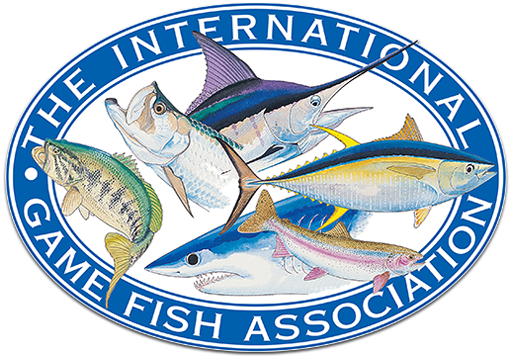IGFA Representative Steve Yatomi
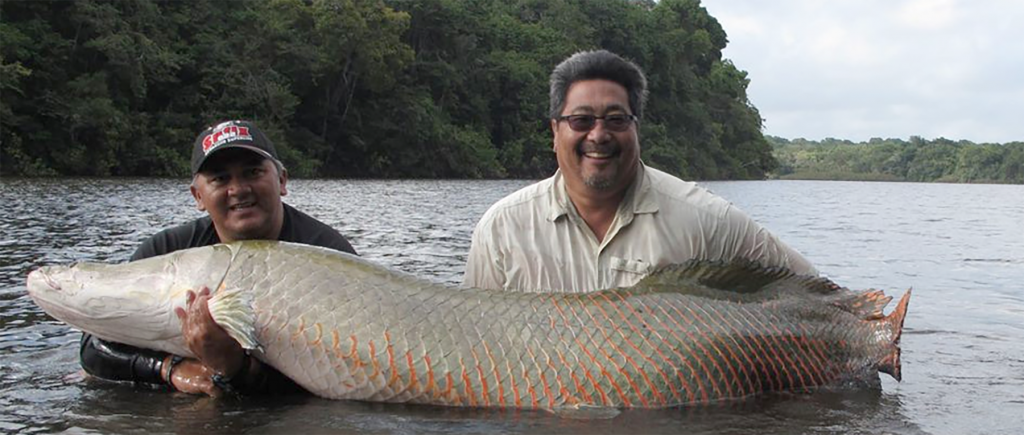
Born into a family of commercial tuna fisherman in 1955, Steve Yatomi began fishing the inshore waters around his childhood home in Southern California at the age of four. Yatomi’s early indoctrination to recreational angling has led him to a successful career in the industry, where he has worked alongside charter boats, outfitters and lodges for nearly 50 years to provide anglers with unique and memorable fishing experiences.
Yatomi’s extensive 25+ year experience of working with lodges and outfitters in exotic and remote locations around the world has opened his eyes to the need of introducing conservation and sustainable fishing practices in areas where fishing regulations are lacking, or simply do not exist. “My focus in recent years has been to create sustainable fisheries for indigenous people in remote locations and educate them on the importance of proper resource management and conservation so that future generations can prosper,” says Yatomi. “Putting proper conservation measures in place for a fishery is only part of what I try to accomplish,” states Yatomi. “My goal is to create a holistic ‘master plan’ around recreational angling to build things needed in the community such as schools, health clinics, community centers, housing, farming, shops and social service programs.”
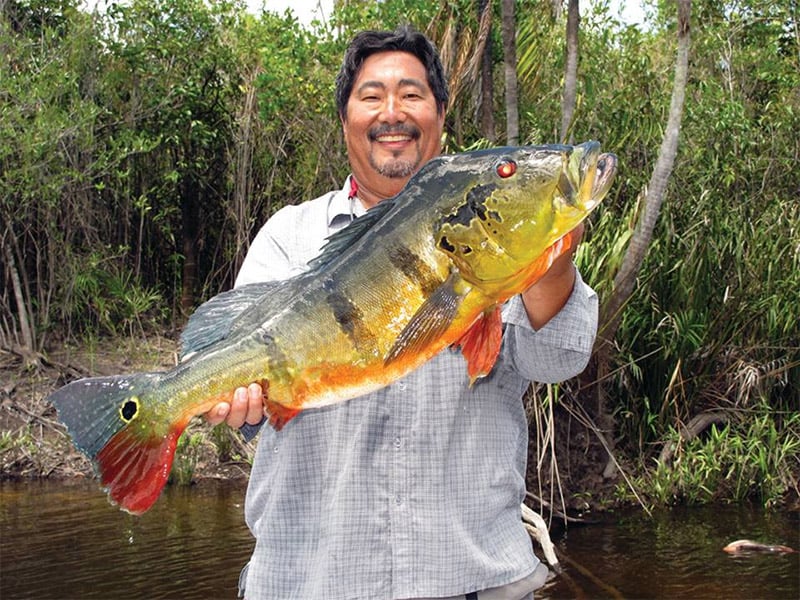
Yatomi has worked alongside charter boats, outfitters and lodges for nearly 50 years to provide anglers with unique and memorable fishing experiences.
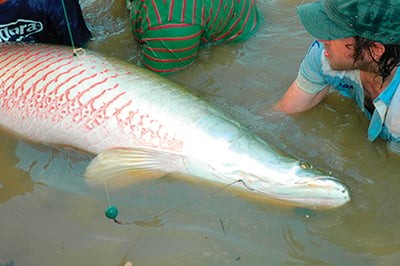
Yatomi is currently consulting with local and federal officials on establishing new laws to protect the emerging fishery for arapaima, and other exotic species found in the Essequibo.
Yatomi is currently working on a project in the South American country of Guyana, where he is educating local villages along the Essequibo River on the importance of conservation and the threats posed by pollution and unsustainable netting. Over the past decade, Guyana has become increasingly popular for recreational anglers seeking to target arapaima – a prehistoric freshwater game fish that can grow in excess of 300 pounds and that willingly take lures and flies. Yatomi is currently consulting with local and federal officials on establishing new laws to protect the emerging fishery for arapaima, and other exotic species found in the Essequibo. With many locals relying on these fish as a primary food source, Yatomi is working to diversify their food source and take pressure of the fishery by creating infrastructure for tourism and farming. “My goal is to create a balanced economic system that is accepted and approved by the local communities, so the economic benefits of the system stay within the community,” Yatomi says. “These are huge challenges that aren’t easy, but by working together we are changing communities one at a time.”
In 2018, Yatomi received the prestigious IGFA Conservation Award for this groundbreaking work in Guyana. Recently, Yatomi was appointed as the IGFA Representative in Guyana due to his vast expertise in the region and the significant amount of time he spends there. However, Yatomi does not plan to limit his work to Guyana alone. “So far, I have worked to educate individuals on the importance of conservation in 84 countries and I plan to add three more to that list in the coming year,” states Yatomi. “The world is a small place and it is important to try and educate as many people as possible, to do my part as a citizen of the world.”
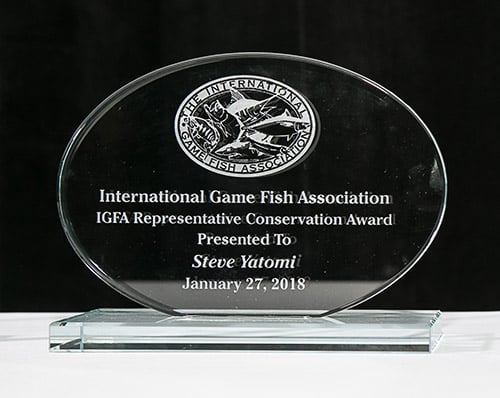
In 2018, Yatomi received the prestigious IGFA Conservation Award
for encouraging the conservation of game fish in Guyana.
The IGFA thanks IGFA Representative Steve Yatomi for the incredible contributions he has made to recreational angling through the promotion of gamefish conservation and ethical angling practices around the world.
